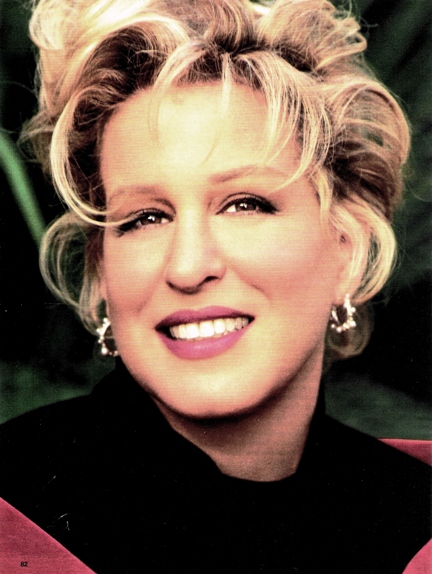New York Times
Easy listening with the ‘mom’ of rock ‘n’ roll
May 5, 1993
TEANECK, N.J. – When Florence Greenberg was a child growing up in Manhattan, she would ‘watch an uncle sit for hours at the family piano, trying out different notes, searching desperately for a breakthrough tune. He was a songwriter who made a meager living at his trade.
“I was fascinated,” she said.
“Even though I couldn’t carry a tune myself, I just knew I’d wind up doing something in the music business.”
Greenberg grew up to become the founder of Sceptor Records, a recording label that flourished during the early days of rock ‘n’ roll with such artists as the Shirelles, the Isley Brothers, Chuck Jackson, Luther Dixon, Dionne Warwick and B.J. Thomas.
Four years ago, Disney Pictures optioned Greenberg’s story for Bette Midler‘s All-Girl Prod u c t i on C o m p a n y.  B o n n ie Bruckheimer, a partner in AllGirl productions, said that the project was “in active development” and that the delay in production had been caused in part by the need to obtain the rights for using the music from a number of Sceptor clients.
The role of Greenberg would b e p l a y e d b y M i d l e r , Bruckheimer said, adding that Midler frequently talks on the phone with Greenberg.
THE WALLS of Greenberg’s apartment in a retirement home here are laden with gold records of S c e p t o r ‘s  h i ts  and photographs of her with Dick Clark, John Lennon and several singing groups. Now 79 and in failing health, Greenberg recently talked of her place in rock ‘n’ roll’s early days.
It was the mid-1950s, an era when the hard-driving sounds of rhythm and blues, which had always been played almost exclusively for black audiences, exploded on the mainstream rock scene.
A small but powerful label, Sceptor was responsible for such hits as “Twist and Shout,”  “Dedicated to the One I Love,” “Soldier Boy,” “Louie Louie“ and “Raindrops Keep Fallin’ on My Head.”
“Believe me, it wasn’t easy, especially for someone like me, a middle-aged housewife, a white woman who was in a black business and who couldn’t even carry a tune,” Greenberg said.
When it all began, it was the early 1950s. She was married to an accountant, had two children and lived in Passaic, N.J. But Greenberg said she took trips, often alone, to Broadway shows or hockey games, and she listened to music constantly, particularly rhythm and blues.
IT WAS a chance acquaintance that landed her in the music business.
“My husband’s distant cousin was in the music business; he was an arranger at a publishing firm that handled Elvis Presley, and he would tell us stories,” Greenberg said.
“I’d give him some input on new artists, and he kept telling me I had an eye and a ear for the music business.”
She began to hang around the Turf, a New York restaurant, now closed, on Broadway and  51st Street, and she was an odd sight, among several fledgling black artists who were writing songs and working all eight phones there. They were trying to get a break in the music business and were pretending to be phoning from their offices.
People like Ed Townsend, who would later go on to record the hit “For Your Love,” would try out their m a t e r i a l  for Greenberg, who was free with her advice.
“I decided to open a small office at 1674 Broadway, and I called myself Sceptor Records only because my lawyer had a client with that name who’d gone out of the music business and I wouldn’t have to pay for licensing,” Greenberg said. “Now I prayed that someone, anyone, would walk in with a song and sell it to me.”
HER DAUGHTER Mary Jane, then a teen-ager at Passaic High School, provided Greenberg her first client.








